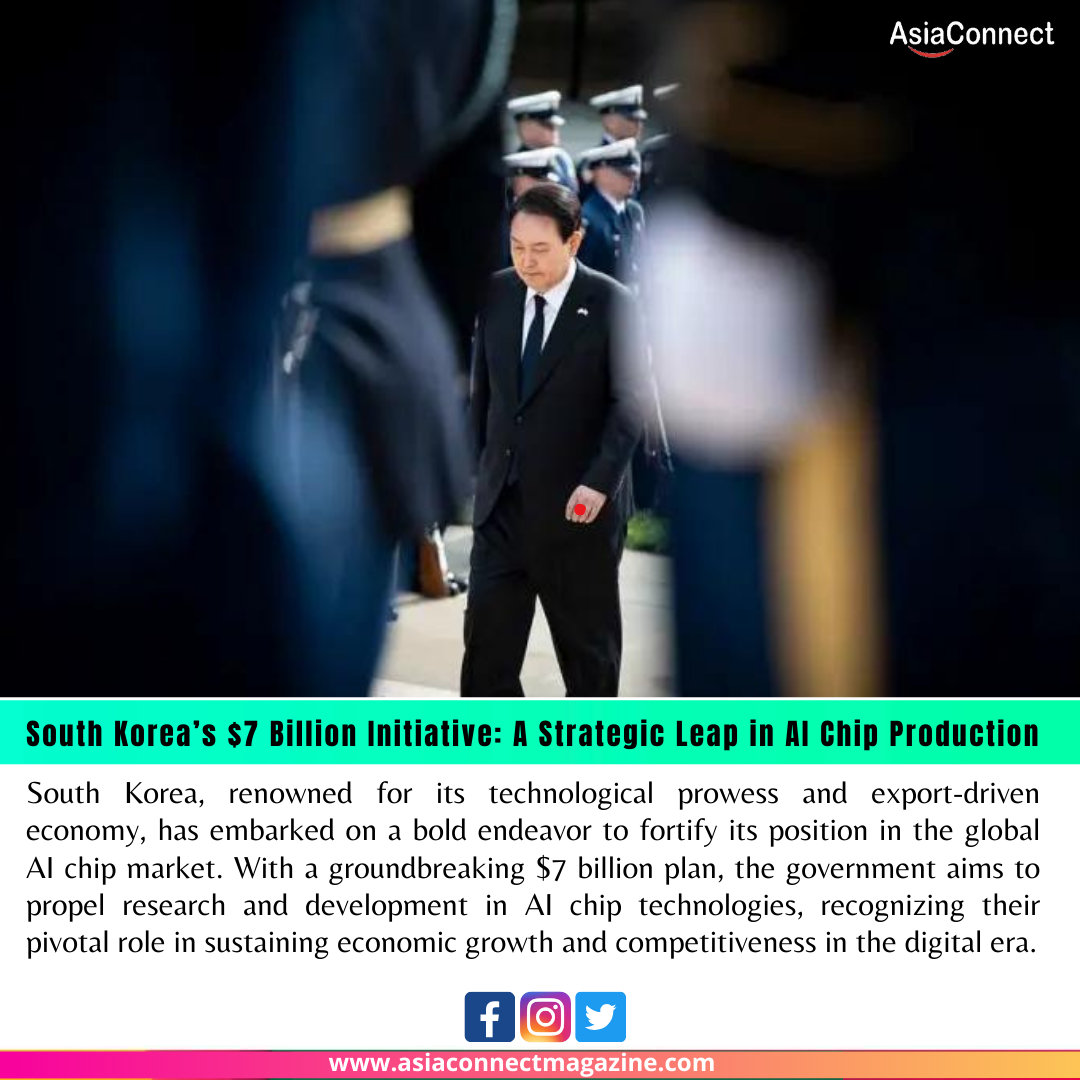South Korea, renowned for its technological prowess and export-driven economy, has embarked on a bold endeavor to fortify its position in the global AI chip market. With a groundbreaking $7 billion plan, the government aims to propel research and development in AI chip technologies, recognizing their pivotal role in sustaining economic growth and competitiveness in the digital era.
The initiative, unveiled against the backdrop of intensifying global competition in advanced semiconductor manufacturing, signifies South Korea’s strategic foresight and commitment to fostering innovation. As the demand for AI-enabled devices surges across diverse sectors, from smartphones to autonomous vehicles, the race to develop cutting-edge AI chips has become increasingly paramount.
Central to South Korea’s ambitious blueprint is the cultivation of a robust ecosystem for AI chip research and production. A substantial portion of the allocated funds will be channeled into bolstering R&D infrastructure, nurturing talent, and fostering collaboration between industry, academia, and government agencies. By nurturing a conducive environment for innovation, the initiative aims to catalyze breakthroughs in AI chip design, fabrication, and application.
The significance of AI chips in powering next-generation technologies cannot be overstated. Unlike traditional microprocessors, AI chips are specifically tailored to accelerate artificial intelligence algorithms, enabling devices to perform complex tasks with unparalleled efficiency and speed. From enhancing computational capabilities to enabling real-time data processing, AI chips underpin the development of transformative technologies that are reshaping industries and societies.
South Korea’s strategic investment in AI chip production is underpinned by its recognition of the technology’s multifaceted benefits. Beyond bolstering its semiconductor industry’s global competitiveness, the initiative holds the potential to stimulate economic growth, foster job creation, and fuel innovation across various sectors. By capitalizing on its technological prowess and engineering expertise, South Korea seeks to carve out a formidable niche in the burgeoning AI chip market.
Moreover, the initiative aligns with South Korea’s broader vision of transitioning towards a knowledge-based economy driven by innovation and digitalization. As the global economy undergoes profound transformations accelerated by technological advancements, nations worldwide are vying to position themselves at the forefront of emerging industries. South Korea’s strategic focus on AI chip production underscores its commitment to harnessing the power of technology to drive sustainable growth and prosperity.
The timing of South Korea’s foray into AI chip production is particularly auspicious, given the escalating geopolitical dynamics and supply chain disruptions reshaping the semiconductor landscape. With traditional semiconductor powerhouses facing mounting challenges, there exists a window of opportunity for emerging players like South Korea to seize market share and establish themselves as key players in the AI chip ecosystem.
Nevertheless, South Korea’s quest to become a global leader in AI chip production is not without its challenges. The rapid pace of technological innovation, coupled with the fiercely competitive semiconductor market, demands sustained investments in research, talent development, and infrastructure. Additionally, navigating regulatory complexities, intellectual property rights, and geopolitical tensions poses formidable hurdles that must be addressed with strategic foresight and agility.
In conclusion, South Korea’s $7 billion initiative to boost AI chip production heralds a new chapter in the country’s technological journey. By harnessing the transformative potential of AI chips, South Korea aims to unlock new frontiers of innovation, drive economic growth, and cement its position as a global leader in semiconductor technology. As the digital revolution gathers momentum, the success of South Korea’s ambitious endeavor holds profound implications for the future trajectory of the global semiconductor industry and the broader digital economy.





